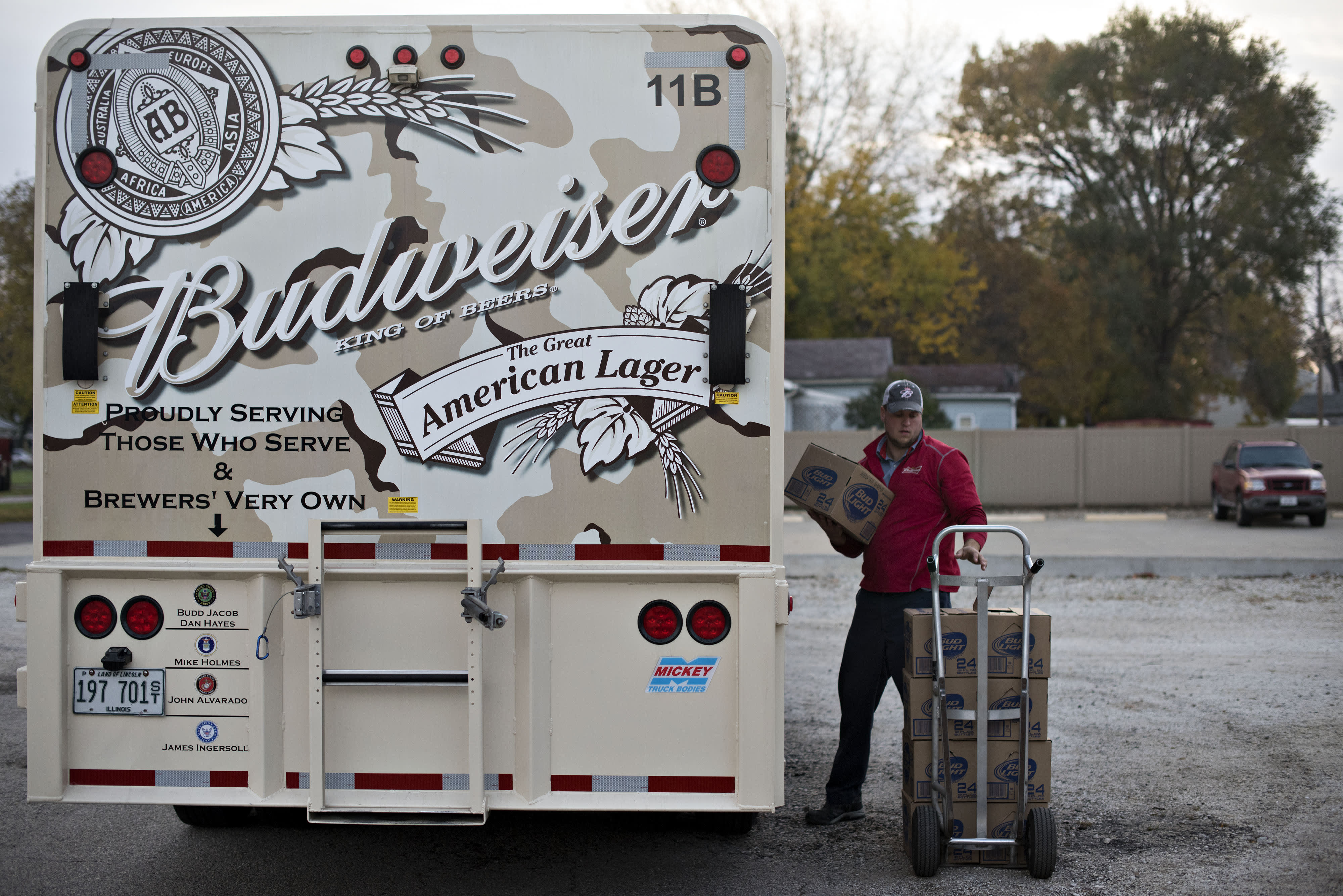A driver for Brewers Distributing Co., loads a hand truck with Anheuser-Busch beer during a delivery at Hole In The Wall Saloon in Pekin, Illinois.
Daniel Acker | Bloomberg | Getty Images
Shares in Anheuser-Busch InBev tumbled 10% on Friday after the world’s largest brewer lowered profit growth forecasts for this year after drinkers in Brazil and South Korea turned away from its beers in a weak third quarter.
The maker of Budweiser, Corona and Stella Artois previously predicted strong growth of revenue and core profit, or EBITDA, this year. It downgraded its guidance for EBITDA — earnings before interest, tax, depreciation and amortization — after what it described as a “challenging” July-September period.
The Belgium-based company’s third-quarter core profit was unchanged year-on-year, missing market expectations for a 3% rise.
Shares in the firm were down 10.5% at 74.15 euros ($84.24) in early trading, making them the weakest performers in the FTSEurofirst index of leading European stocks.
AB InBev had warned of some weakness after a strong second quarter when its beer sales rose at their fastest pace in more than five years.
Shipping beer to China had been disproportionately higher in the second quarter because of promotions, and so they were lower in the third. Costs rose because of higher aluminum and malt barley costs and due to the weaker currencies of some of its markets, notably the Brazilian real.
Sales and marketing costs were also higher than in the third quarter of 2018. Last year, such costs were skewed towards the first half of the year because of the soccer World Cup.
Brazil, South Korea sales down
Beyond these anticipated items, the company also suffered lower beer sales in Brazil and Korea as it increased prices in weak consumer markets.
In Brazil, AB InBev’s second largest market behind the United States, the company saw beer its volumes drop by 3% as some competitors sold their beer at a discount to consumers, who have been feeling pressure on their real disposable income.
Brazil’s economic performance has been erratic. Its economy contracted in the first quarter. The central bank has raised its growth forecast for 2019 to 0.9% but said there was a high degree of uncertainty.
In South Korea, where AB InBev is the market leader, the firm hiked beer prices in April, but rolled them back this month because of an economic slowdown and after rivals failed to follow suit.
South Korea’s trade-reliant economy has been among those worst hit by cooling demand as a prolonged U.S.-China tariff war disrupts global supply chains. Its economic growth slowed more than expected in the third quarter.
AB InBev said it continued to expect strong overall revenue growth in 2019 but said the challenges of Brazil and South Korea would continue into the fourth quarter, so the company only expected “moderate” growth of core profit.
Economic challenges in other markets, including Argentina and South Africa, also led the company to push more affordable lagers, meaning revenue per liter growth would be slightly behind inflation. It previously forecast above inflation growth.
Aside from beer making, AB InBev has had a busy three months, selling its Australian subsidiary Carlton & United Breweries to Asahi for $11 billion and raising about $5.6 billion for a second attempt to float part of its Asian business.
The brewer has said it will use the proceeds of the sales pay off debt, which stood at more than $100 billion after its 2016 purchase of nearest rival SABMiller.
On Friday, it said that the two sales would push its net debt to EBITDA ratio to below four times at the end of 2019, a year ahead of target, from 4.61 at the end of June.
